#Langblr
Explore tagged Tumblr posts
Text
Websites to learn languages by reading
Hyplern
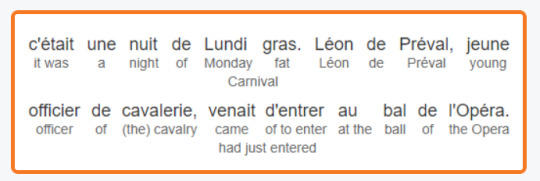
Language Crush
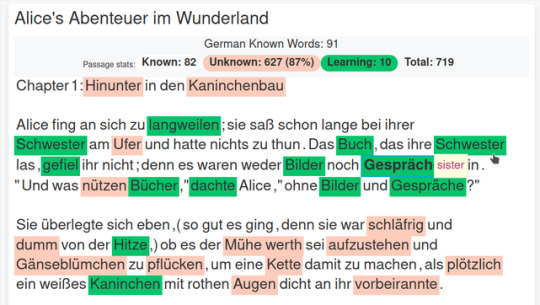
Readlang
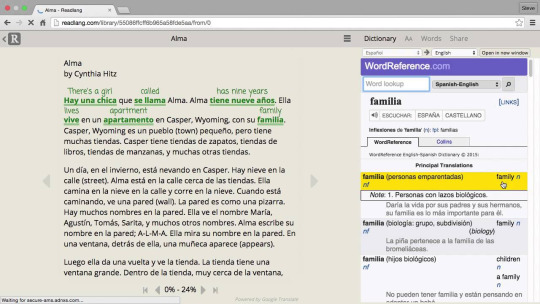
Vocab Tracker

11K notes
·
View notes
Text
a few more commonly confused words
Afflict - to cause suffering or unhappiness (something a disease does) Inflict - to force pain or suffering (like if you smack someone) (Both cause pain)
Allude - to refer to something in an indirect manner Elude - to evade
Alone - no other person is with you Lonely - you are alone, and sad as a result
Amicable - a friendliness or goodwill between people or groups Amiable - friendly disposition
Arise - happen or occur Rise - to go up
Assent - refers to agreement Ascent - a climb
Aver - to affirm Avow - to openly declare
Correlation - a relationship Corollary - more like a consequence
Disassemble - to take something apart Dissemble - to hide your true self
Discreet - under the radar, careful Discrete - individual or detached
Disinterested - unbiased; out of the loop Uninterested - don't give a hoot; bored
Disperse - to scatter Disburse - to pay
Eminent - famous Imminent - refers to something about to happen Immanent - inherent
Exalt - to glorify or elevate something Exult - to rejoice
Expedient - something helpful Expeditious - speedy
Extant - still here Extent - the range of something
Faze - to disturb, bother, or embarrass Phase - a stage or step
Fictional - literary Fictive - specific Fictitious - just plain fake
Imply - to hint at something Infer - to make an educated guess
Ingenious - smart and clever Ingenuous - innocent and naive
Insidious - something that lies in wait to get you Invidious - something offensive or defamatory
Loath - unwilling or reluctant Loathe - to hate
Morbid - describes something gruesome Moribund - the act of dying
Paradox - a logical puzzle that seems to contradict itself Oxymoron - a figure of speech—words that seem to cancel each other out (e.g., instant classic)
Parameter - a limit that affects how something can be done Perimeter - the outline of a physical area
Practical - sensible Practicable - possible
Pragmatic - you're practical Dogmatic - you follow the rules
Premiere - the first public performance of something Premier - the very best
Prescribe - to recommend Proscribe - to forbid
Rebut - to try to prove something isn’t true Refute - to actually prove it isn’t
Reluctant - resisting or unwilling Reticent - quiet, restrained, or unwilling to communicate
Sources: 1 2 ⚜ More: Writing Basics ⚜ Writing Resources PDFs ⚜ Part 1
#writing basics#grammar#writing reference#writeblr#literature#dark academia#writers on tumblr#spilled ink#writing prompt#creative writing#light academia#writing refresher#words#langblr#linguistics#writing resources
148 notes
·
View notes
Text
Duolingo Sucks, Now What?: A Guide
Now that the quality of Duolingo has fallen (even more) due to AI and people are more willing to make the jump here are just some alternative apps and what languages they have:
"I just want an identical experience to DL"
Busuu (Languages: Spanish, Japanese, French, English, German, Dutch, Italian, Portuguese, Chinese, Polish, Turkish, Russian, Arabic, Korean)
"I want a good audio-based app"
Language Transfer (Languages: French, Swahili, Italian, Greek, German, Turkish, Arabic, Spanish, English for Spanish Speakers)
"I want a good audio-based app and money's no object"
Pimsleur (Literally so many languages)
Glossika (Also a lot of languages, but minority languages are free)
*anecdote: I borrowed my brother's Japanese Pimsleur CD as a kid and I still remember how to say the weather is nice over a decade later. You can find the CDs at libraries and "other" places I'm sure.
"I have a pretty neat library card"
Mango (Languages: So many and the endangered/Indigenous courses are free even if you don't have a library that has a partnership with Mango)
Transparent Language: (Languages: THE MOST! Also the one that has the widest variety of African languages! Perhaps the most diverse in ESL and learning a foreign language not in English)
"I want SRS flashcards and have an android"
AnkiDroid: (Theoretically all languages, pre-made decks can be found easily)
"I want SRS flashcards and I have an iphone"
AnkiApp: It's almost as good as AnkiDroid and free compared to the official Anki app for iphone
"I don't mind ads and just want to learn Korean"
lingory
"I want an app made for Mandarin that's BETTER than DL and has multiple languages to learn Mandarin in"
ChineseSkill (You can use their older version of the course for free)
"I don't like any of these apps you mentioned already, give me one more"
Bunpo: (Languages: Japanese, Spanish, French, German, Korean, and Mandarin)
#EDIT: Added a great resource for ESL and African languages that weren't found elsewhere#I do NOT recommend memrise and will talk about it another day but#langblr#duolingo#duo#language learning#language learning apps#mandarinblr#resource#reference
78K notes
·
View notes
Text


German Reading Comprehension: Memes my mum sent me
102 notes
·
View notes
Text
learning another language is always beautiful, no matter how long it takes. like, what do you mean you are crying because you had to read a sentence twice to get it, when at the beginning you had to do it five times? kicking yourself because you had to listen to an audio at .75x to understand it fully, when two months ago you could barely understand one or two words, even at your second try? getting mad because you had to research how to spell a word, when a few days back you didn't even know how to pronounce it? hell, that's amazing. keep going. you'll get there.
2K notes
·
View notes
Text






22.04.24. 💐🎻 🍎 the second week of the semester has started! so far every course has been really interesting :) i've also my violin practice longer and noticed progress practically immediately which is very motivating
#studyblr#langblr#aesthetic#study aesthetic#study inspiration#studying linguistics#studying media science#studyspo#academia#tw food#jaystudies
57 notes
·
View notes
Text
there's this word in Serbian 'vukojebina' which literally means 'the place where wolves go to fuck' but they use it to mean 'in the middle of nowhere'. it sure does the job well, but the visual stayed with me longer than I would have liked it to.
#linguistics#language#langblr#serbian#don't know if it's also used in Croatian Bosnian or Montenegrin
22K notes
·
View notes
Text
my friend and i were going to study a language together and wound up having to cancel our plans due to scheduling pressures, but! through research we came across a really cool resource for reading in a TON of languages: bloom library!
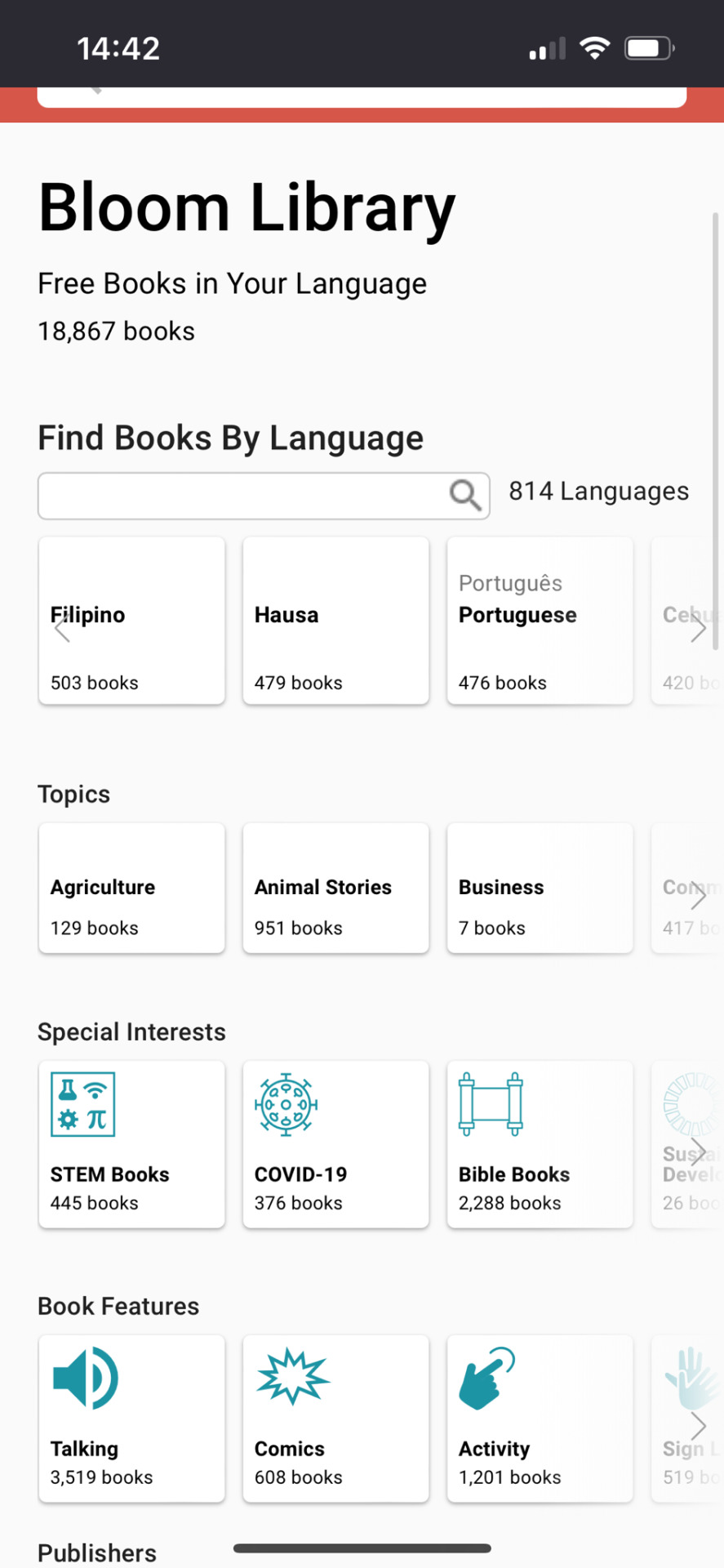
as you can see, it has a lot of books for languages that are usually a bit harder to find materials for—we were going to use it for kyrgyz, for example, which has over 1000 books, which was really hard to find textbook materials for otherwise. as you can see it also has books with audio options, which would be really useful for pronunciation checking. as far as i can tell, everything on the site is free as well.
7K notes
·
View notes
Text

𝐂𝐨𝐧𝐯𝐞𝐧𝐢𝐞𝐧𝐜𝐞 𝐬𝐚𝐦𝐩𝐥𝐞
A sample of participants in research selected on the basis of their accessibility rather than their representativeness.

#dark academia#light academia#litblr#english language#langblr#words#spilled words#spilled ink#writing#creative writing#writeblr#writers on tumblr#resources for writers#writers and poets#writing prompt#definition#vocabulary#writer#writing inspiration#vocab#language
40 notes
·
View notes
Text
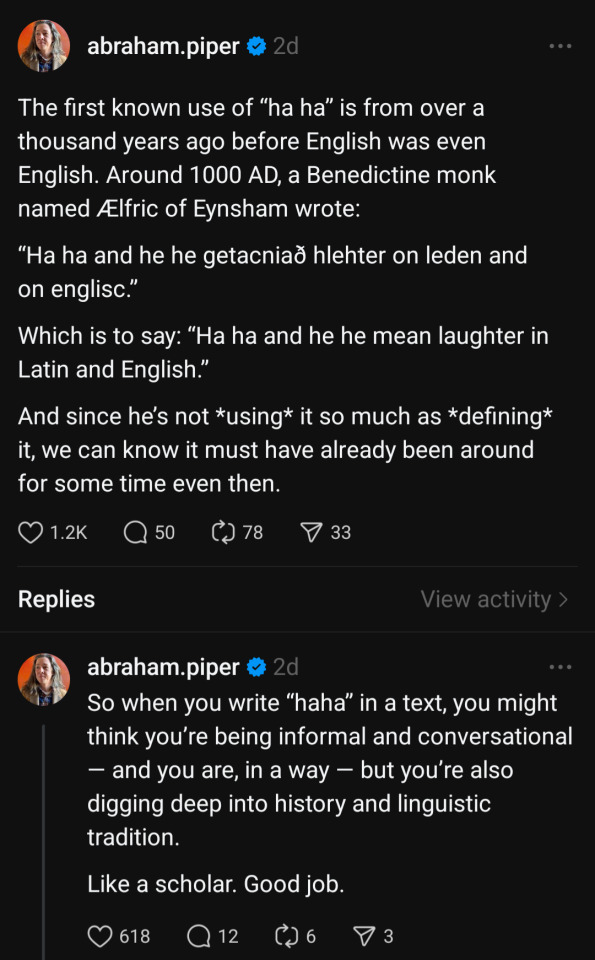
13K notes
·
View notes
Text
Another List of "Beautiful" Words
to include in your next poem
Avidulous - somewhat greedy.
Breviloquent - marked by brevity of speech.
Compotation - a drinking or tippling together.
Crimpy - of weather; unpleasant; raw and cold.
Desiderium - an ardent desire or longing; especially, a feeling of loss or grief for something lost.
Dyspathy - lack of sympathy.
Ebriosity - habitual intoxication.
Epitasis - the part of a play developing the main action and leading to the catastrophe.
Fantod - a state of irritability and tension.
Graumangere - a great meal.
Grimoire - a magician's manual for invoking demons and the spirits of the dead.
Hiemal - of or relating to winter.
Illaudable - deserving no praise.
Impluvious - wet with rain.
Innominate - having no name; unnamed; also, “anonymous”.
Juberous - doubtful and hesitating.
Noctilucous - shining at night.
Poetaster - an inferior poet.
Psychrophilic - thriving at a relatively low temperature.
Quiddity - the essential nature or ultimate form of something: what makes something to be the type of thing that it is.
Repullulate - to bud or sprout again.
Retrogradation - a backward movement.
Semiustulate - half burnt or consumed by fire.
Tenebrific - causing gloom or darkness.
Unparadiz’d - brought from joy to miserie.
If any of these words make it into your next poem/story, please tag me. Or leave a link in the replies. I'd love to read them!
More: Lists of Beautiful Words ⚜ Word Lists ⚜ Writing Resources PDFs
#writing#writing prompt#creative writing#writers on tumblr#writeblr#poets on tumblr#poetry#words#literature#lit#spilled ink#langblr#studyblr#word list#beautiful words
16K notes
·
View notes
Text


I have three days left before my entrance exam. I didn’t study much today, but I’ll try my best to complete at least one English book.
#daily study blog#daily study review#i wanna study#my stuff#my photos#april 2025#jipmat prep#test 1 prep challenge#study blog#study motivation#studyblr#studyspo#studyinspo#study inspiration#study#light acadamia aesthetic#light academia#language#langblr#english
21 notes
·
View notes
Text








Þingvellir, Iceland, April 2025
Probably my favourite place I’ve seen on Iceland, a national park with a long history. For some reason I was really taken by the atmosphere of the place and my imagination was running wild. We were lucky and there were almost no other people so we got to enjoy the place in peace and quiet.
20 notes
·
View notes
Note
Hi! is there any word for a furnace besides el horno? Oven and furnace are the same word? is there a more specific maybe regionalism used? Or is it Just determined through context use? Thank you!
To the best of my knowledge it's usually el horno which does mean "oven" and "furnace" - sometimes it's the diminutive el hornillo
See the issue here is that English has more variation, but horno is related to the word forno which is "furnace" but also an "oven" [the word "oven" is most likely more Germanic rather than "furnace" which is Latin]
There are specific types of horno for different things like sometimes el alto horno is a "blast furnace" for industrial things, and for pottery you might see it as el horno (seco) which can get translated as "kiln"
The only other word I know of that is sometimes translated as "furnace" is that la caldera can be "boiler" like the hot water maker, though it literally means "cauldron"... but that's specifically for hot water as far as I know, not a furnace in the general sense. It's the part of the tank that boils water and releases it or releases steam, not the heating mechanism itself which is usually el fogón
-
If you're talking about furnaces like for a steamship, the word is typically either el fogón or el hogar
el fogón which literally means "big fire" is a firepit or it can be a chamber that creates heat [fogonero/a "stoker" was someone who shoveled coal into the furnace for example]; today you usually see el fogón in relation to appliances like a heating mechanism or a burner on a stove, or it can be another word for "campfire" [the other word is la hoguera which can be "bonfire"]
The general word is el hogar - which you will know as "home", but it literally means "hearth" - see el hogar used to be written with an F, and it's directly related to fuego; hogar meant "the place fire is kept" so it meant the hearth, and came to mean a building that could keep you warm and then euphemistically came to encompass bringing people around a fire until you get the idea of "home"
Depending on context, el hogar can be a type of oven itself
...
All these words, el hogar, el fogón, la hoguera... it's all related to el fuego "fire" etymologically
19 notes
·
View notes
Text
Ich hab letztens noch gesagt "es wäre sozial desaströs, aber linguistisch brauchen wir eine deutsche Entsprechung für 'bless your heart'"
Ich bin ja Deskriptivist und finde Sprachwandel und Fremdwörter total in Ordnung aber manchmal denke ich auch wir könnten ruhig mehr "eigene" Wörter benutzen oder erfinden. Muss ja nicht so lächerlich staatlich geregelt werden wie bei den Franzosen aber manchmal höre ich das neuste englische Wort der Woche und denke so. das könnten wir besser.
144 notes
·
View notes